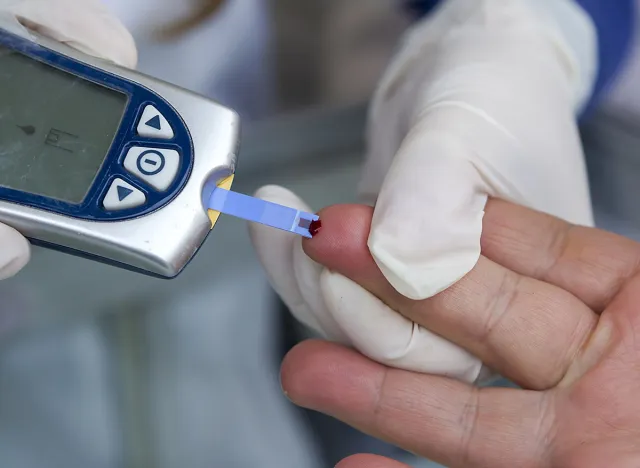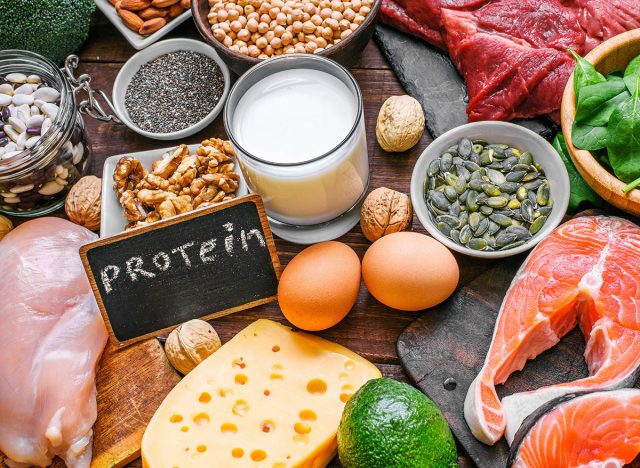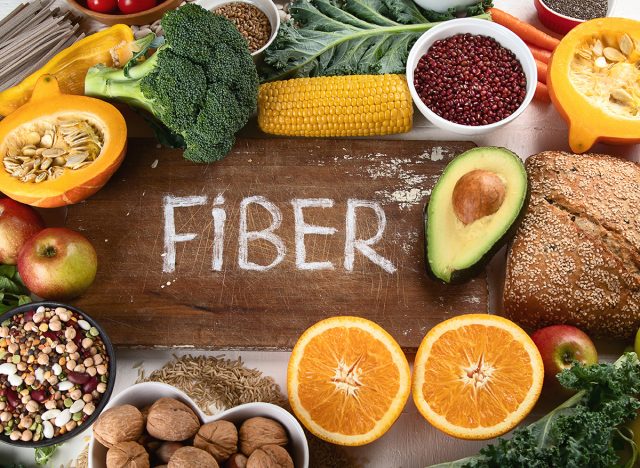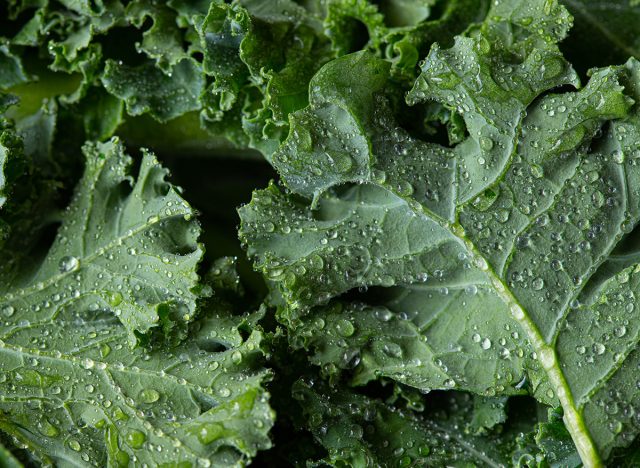10 Gut Health Red Flags Sabotaging Your Weight Loss

Are you struggling to lose weight – even though you are eating less and exercising more? It may have to do with your gut. "There are so many gut health red flags sabotaging your weight loss," Sarah Mathis, DO, Functional Medicine Osteopathic Physician, tells Body Network. The good news? Weight loss "naturally happens" with many of them "when they are addressed," she says, and the "weight melts off and their metabolism resets." Here are ten gut health red flags sabotaging your weight loss.
Inflammation

Inflammation is "critical in gut healing," says Dr. Mathis. "When our gut has some sort of inflammation, either from a bacterial or yeast overgrowth (or a parasite), it leads to your gut lining becoming inflamed. The inflammation in your gut lining opens the portal of your gut to your body's immune system, and when it sees the food or toxins, your body attacks, and then inflammation occurs. This inflammation spreads throughout the body, attacking your thyroid (the organ that regulates your metabolism), and this causes weight to stall. Also, your liver becomes inflamed, making it harder to get rid of toxins and slowing your metabolism down as well," she explains.
Nervous System Dysregulation

Nervous system dysregulation is another common culprit. "When our body is stressed out chronically, you cannot lose weight at all. And the gut-brain connection causes our body to hold onto weight because, no, your body doesn't feel safe," she says. "It's always stuck in a 'fight or flight' mode, leaving your gut to become more inflamed. The constant state of fight or flight decreases your brain's ability to send blood flow to your gut and allows your body to digest. This slows down the motility in the gut, lowering your stomach acid and then causing your gut to become a breeding ground for more bacteria, yeast, and parasite overgrowths. The elevation in cortisol also makes you more likely to have resistance to the hormone insulin, your body's blood sugar regulator to keep your appetite in check."
Blood Sugar Instability

Blood sugar instability is another red flat. "Insulin is the body's regulator of the balancing act of your blood sugar. If your blood sugar gets too high, then more insulin has to be pumped out in your gut to keep your blood sugar from rising too high," says Dr. Mathis. "It also makes sure your body's insulin level doesn't get too low, or you can feel shaky, dizzy, and lightheaded. The constant high blood sugar level causes your body to build a tolerance to the insulin level, leading to insulin resistance. This insulin resistance leads to an increased risk of diabetes, heart disease, PCOS, and obesity. The gut needs to be in balance to help regulate your blood sugar, or you're more likely to sabotage your weight loss."
Lack of Sleep

Feeling tired all of the time? Lack of sleep could be impacting your gut health. "Sleep not only affects your body's inflammation levels in your gut and entire body, but it also regulates your appetite," says Dr. Mathis. "Your gut microbiome actually changes when you have a lack of sleep, and not only do you have increased hunger signals when you do not sleep, but lack of sleep can change your gut microbiome to have fewer bacteria that help improve your metabolism and leptin sensitivity." She adds that leptin is the "satiety" hormone made in fat cells that tells your body, "Hey, I'm full." But lack of sleep actually decreases leptin as it increases inflammation in the body as well as changes the gut microbiome.
RELATED: 15 Low-Fat, High-Protein Snacks to Shed Pounds
Change in Thyroid Levels

Changes in thyroid levels aren't great for your gut. "Your gut is closely related to thyroid function. The active thyroid hormone, T3- which is the thyroid hormone often not tested in conventional medicine but tells how well your body absorbs thyroid hormones, is converted from the thyroid's hormone T4 to the active version your body needs, T3, in the gut itself," says Dr. Mathis. "If your gut is overrun by harmful bacteria, yeast, and parasites, you cannot have the active thyroid hormone. Your thyroid is in charge of your energy and metabolism levels, so if this is low, then you likely cannot lose weight. So addressing your gut health is critical for thyroid health as well as your weight."
Need for Detoxification

If you are in need of a detox, that's another red flag. "Oftentimes the liver is overwhelmed with toxins, leaving you feeling bloated and sluggish and stalled weight loss," says Dr. Mathis. "Addressing liver and lymphatic health, both which are key players in detoxing your body, is an essential part of my client's healing journey. They need to make sure all their pathways are open or the gut will have trouble getting rid of toxins like heavy metals or clearing out extra hormones like estrogen, cortisol or thyroid hormone. If those hormones stay too high in the body, they often lead to decreased weight loss."
You Aren't Eating Enough

Amanda Sauceda, RD, Gut Health Specialist, founder of The Mindful Gut, says that not eating enough could be sabotaging your weight loss. "Digesting your food takes energy and if you're over restricting calories then it could upset your digestion and sabotage weight loss," she says. "When the body isn't getting enough energy (aka calories) then less important functions, like digestion, aren't prioritized." How to remedy it? "Instead of focusing on restricting calories, aim for more nutrient-dense foods. Nutrient-dense foods (like whole grains, lean protein, fruits, and vegetables) are naturally lower in calories while being rich in nutrients to support your metabolism."
RELATED: This Plan Is How to Lose 5 Percent Body Fat In 2 Weeks
You're Not Eating Enough Protein

Not eating enough protein can also disrupt your gut health. "Protein does help support muscle growth, and in turn, more lean muscle mass can increase metabolism. Additionally, protein in your meal helps release gut-derived appetite hormones that keep you full. Focus on meals with protein and, as a bonus, also get protein in your snacks (especially when you know you won't be eating for a while)," says Sauceda.
You're Not Eating Enough Fiber

Not eating enough fiber can also impact gut health. "If you're feeling bloated and also working on weight loss you may want to look to your gut health for the solution. If you're feeling bloated, then more likely you are constipated, and the best solution for constipation is to increase fiber intake. Fiber helps digestive health by keeping things moving in your gut and encourages regular bowel movements," Sauceda says.
RELATED: 5 Calorie-Burning Full Body Kettlebell Exercises You Need to Try
You're Not Eating Enough Plants

Eat your veggies for optimal gut health. "Eating a variety of plants is extremely beneficial to your gut microbiota," says Sauceda. "By eating a wide variety of plants, which acts as food for your gut, you are encouraging a more diverse gut microbiome. There is emerging research that suggests your gut microbiome may play a role in metabolism. Next time you go to the market, pick up a new fruit or veggie to try."
💪🔥Body Booster: Prioritize getting 7-9 hours of quality sleep each night to support your gut health and overall well-being. According to The Diet Diva, Tara Collingwood, a Board Certified Sports Dietitian, sleep is just as essential as air, food, and water for every cell in your body.




